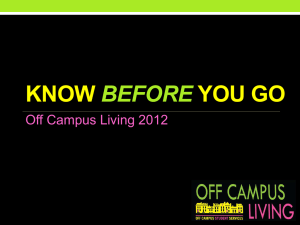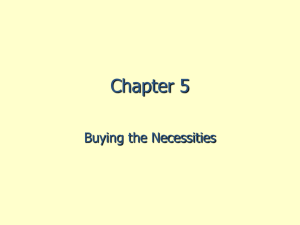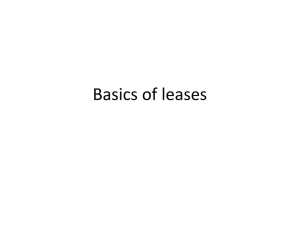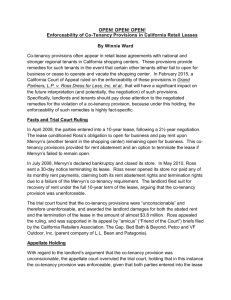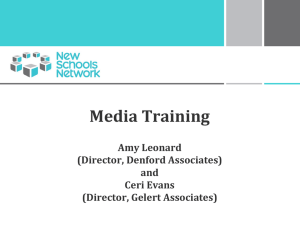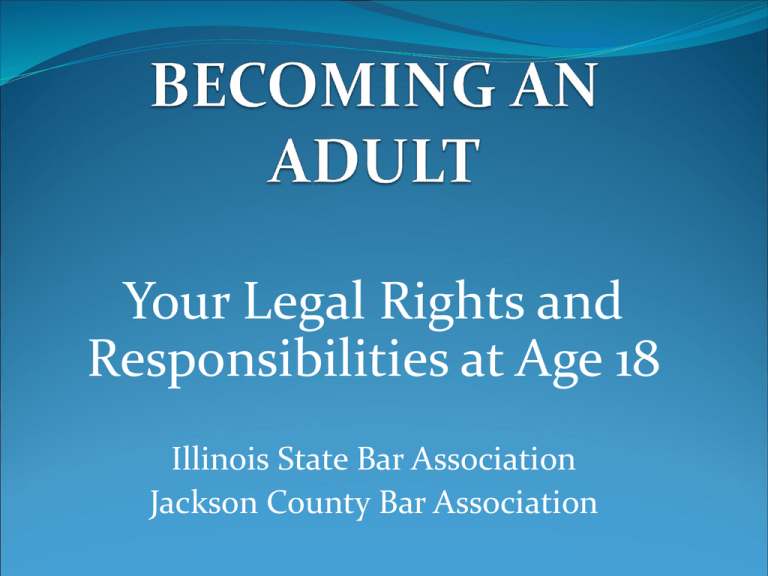
Your Legal Rights and
Responsibilities at Age 18
Illinois State Bar Association
Jackson County Bar Association
When do I become an “adult?”
In Illinois, you become an adult
for most purposes when you
turn 18.
What are some new rights
after turning age 18?
You have the right to:
Vote & serve on a jury
Make a will
Sue in your own name
Make a contract (rent an apartment, buy a car,
take out a loan)
Get medical treatment
Be completely independent from your parents
Apply for credit in your own name
Get married, without parental consent
What Are Some Responsibilities
That You Have After Age 18?
You are considered an adult for misdemeanor offenses
when you turn 18, and for felony charges at age 17.
Generally, parents no longer have to support you (there
are some exceptions for divorced parents).
Others may sue you on contracts you make.
If you are a male, you must register for the military
draft.
You may be sued for child support.
Driving is not a right; it is a privilege that the State can
regulate, or even take away!
Once you turn 18, your parents are usually not liable for
your accidents.
If you own a motor vehicle registered in Illinois, you must
insure the vehicle against liability for collision.
It is illegal to let someone who is under the influence of
alcohol or drugs drive your car. It is also illegal for anyone
to drink alcohol in your car, or to have an open container in
the passenger area of the car.
Cell Phone Use & Driving
Drivers under age 19 are prohibited from using cell
phones while driving – even if they are hands-free!
The one exception is for an emergency to call the police,
hospital, fire department, or other emergency agency.
All drivers are prohibited from text messaging and
related activities, such as emailing and internet use.
The one exception is in an emergency situation if it is a
hands-free device or while stopped on the side of the road.
All drivers are prohibited from using cell phones in
school speed zones, construction or road maintenance
zones, and within 500 feet of emergency scenes.
In Illinois, the minimum legal drinking age is 21.
Underage people violate the law by drinking or
possessing alcohol, lying about their age to buy
alcohol, having a fake I.D., driving a motor vehicle with
any alcohol in their system, and other ways.
If you are under age 21 and are caught drinking, you may
lose your driver’s license for three months to two years.
Penalties for violating Illinois’ drinking laws are
serious, and may include fines, or jail or prison time.
They also include loss of your driver’s license.
There are similar penalties for drug-related offenses.
What Are My Employment Rights?
Unless you have an employment contract, you can usually be fired at any time
for any reason or for no reason. There are exceptions - you cannot be fired for a
discriminatory reason, such as race or religion, or because you complained
about the employer to a government agency, or for certain other reasons.
Your employer does not have to give you a warning before firing you unless he
or she has agreed to do so.
A written contract may limit your employer’s ability to fire you. Many
employees do not have an employment contract.
If your employer fails to pay you, you can file a wage claim with the Illinois
Department of Labor.
There are many Illinois and federal laws protecting employees. These laws do
things like regulate safety of the workplace and ensure payment of the
minimum wage.
Consumer Protection Laws:
Require lenders to tell you the truth about credit costs and
contract terms.
Prohibit companies from sending you credit cards that you
didn’t ask for and limit your liability for the unauthorized
use of such cards.
Require credit reporting agencies to give you access to your
credit records, allow you to dispute information there, and
reinvestigate any disputed information.
Forbid anyone from refusing to give you credit based on
race, sex, marital status, etc.
Prohibit sellers from using false or misleading statements,
and give you rights to cancel certain contracts within a
certain period of time.
Credit is generally when someone gives a loan to someone else and
does not require immediate repayment, which creates a debt that will
be repaid over time.
A credit rating is supposed to measure your ability to repay a debt.
Lenders use credit ratings to decide whether to loan money and what
the terms will be.
You can get a good credit rating by having a savings account, buying
low-priced items on time, getting a job and responsibly using credit
cards.
A bad credit rating can affect your ability to get a loan for things like a
car, or house, or college, and can mean that you are offered less
favorable terms.
If you don’t have a good credit rating, you may be asked to give
something of value as collateral, such as your house or car. If you are
unable to repay the loan, the lender may take the collateral.
When you turn 18, you can legally enter into contracts for
employment, loans, leases, insurance, medical care, and
credit.
Not all contracts are in writing. If you sign a written contract,
make sure you keep a copy of the signed contract.
Before you enter into any contract, make sure you understand
its terms. Be especially careful if someone asks you to sign a
contract without reading it. Don’t be intimidated by
aggressive salespeople or taken in by friendly ones! Don’t sign
any contract that has blank spaces in it!
Remember that you are responsible for the contract. If you do
not make payments or meet other obligations of the contract,
the other person can enforce the contract, which could
include suing you in court.
What Is A Lease?
A lease is a contract between you and owner of the
apartment, the landlord. If you rent a room, a house, or an
apartment, you are called a tenant.
When you turn 18, you will be legally responsible for any
lease that you sign.
Leases for less than a year do not have to be written, but a
written lease can provide greater protection.
A lease may require you to pay a security deposit, which is
money you give the landlord in addition to rent at the start
of the lease term in case you damage the apartment or don’t
pay rent.
Before you sign a lease:
Read it carefully, make sure you understand the terms, and don’t leave
any blank spaces unfilled. Perhaps talk to a lawyer before you sign the
lease.
Make sure any promises the landlord makes are added to the written
lease.
Understand how much rent you will pay and when, who pays for
utilities, who mows the grass, and if it’s okay to have a pet.
If you sign a lease, keep an exact copy of the lease that is signed by you
and the landlord.
Before you rent, visit the apartment, note its condition, and tell the
landlord in writing about any damage or repairs needed. Keep a copy of
your list. Photograph the apartment before you move in.
What Happens If I’m Arrested?
Once you turn 17, you will be tried as an adult in any felony criminal matters, or
18 for misdemeanor criminal matters.
If arrested, you can expect to be searched for weapons and taken to the police
station. You may be advised of your rights.
You have the right not to answer questions from the police and to have a lawyer
present. Once you ask for a lawyer, the police are not supposed to question you
further. If you cannot afford a lawyer, the court will appoint one for you.
You can choose to answer questions, sign papers or take tests. Remember that
information you give voluntarily can be used as evidence against you in court.
After you are arrested and processed, you must be brought before the judge
within a “reasonable time.” This is usually 48 hours, unless it’s a weekend. You
may also have to pay bail, a specific amount of money, to be released from jail.
When Can I Marry Without My
Parents’ Consent?
When you turn 18, you can get married or enter into a civil
union without your parents’ consent.
If you lie about your age to get married and you are under
age 18, the marriage will be void.
You can get a marriage license from the county clerk’s office
for an application fee. The license expires in 60 days.
A marriage or civil union ceremony must be performed by
an authorized official, such as a clergyperson or a judge, in
the county where the license is issued.
Child Support
A parent can be required to support his or her child, even if the parents
are not married.
If a parent refuses or fails to pay child support, the parent’s income can
be withheld for the amount owed, and the parent can be held in
contempt of court and put in jail.
A parent can request visitation with or custody of his or her child even
though the parents are not married.
A parent’s rights and duties to his or her child can be terminated by the
court under certain circumstances, such as where the parent neglects or
abuses the child.
If the parents are not married, custody is presumed in the mother
unless the child is in physical care of the father for 6 months.
Relationships
If you are 17 or older, it is illegal for you to have a
sexual relationship with someone who is under 17.
You cannot send or receive photographs containing
nudity via texts, Facebook, or otherwise, if one of the
people in the photographs is under age 17. If you do,
you could be charged with child pornography.
Penalties can include jail, prison, registration as a sex
offender and fines.
Do I Need A Parent’s
Consent to See A Doctor?
Once you turn 18, you can consent to medical and dental
procedures, and you can refuse medical treatment, even if
your parents disagree, and even if death will be the certain
result of your decision.
At age 18, you can go to a clinic on your own and get
counseling or birth control.
At age 18, you can consent to drug or alcohol counseling, or
treatment for sexually transmitted diseases and mental
health. The medical provider cannot inform your parents
or guardians without your consent.
At age 18, you can refuse medical treatment, even if your
parents disagree, and even if death will be the certain result
of your decision.
In certain circumstances, you can obtain drug or alcohol
counseling, or treatment for sexually transmitted diseases
and mental health, or other services, even though you are
under age 18. The medical provider cannot inform your
parents or guardians without your consent.
If you receive treatment, you will be responsible for the
cost of the sessions.
A pregnant woman can consent to treatment even if
she is under age 18.
The mother and father of a child can consent to
treatment of the child, even if one or both of the
parents are under age 18.
What Are The Requirements
For Voting?
You must be 18 years old,
A U.S. citizen, and
A resident of IL for 30 days before the
election.
Where Do You Register To Vote?
Students can register at school. Illinois law
allows a school principal or a person designated
by the principal to register students from that
school.
You may also register to vote at the local office
of the Secretary of State (driver’s license
facility).
Who Is Required To
Register For The Draft?
If you are a male citizen or male alien
residing in the U.S. you must register within
30 days after your 18th birthday.
You may register earlier -- up to 120 days
before your 18th birthday.
This process is known as Selective Service
registration.
How Do I Qualify For Jury Duty?
You must be 18 or older,
A U.S. Citizen,
Able to understand English (however, there are
translators – so you might still serve), and
Live in the jurisdiction where you are called to
serve.






